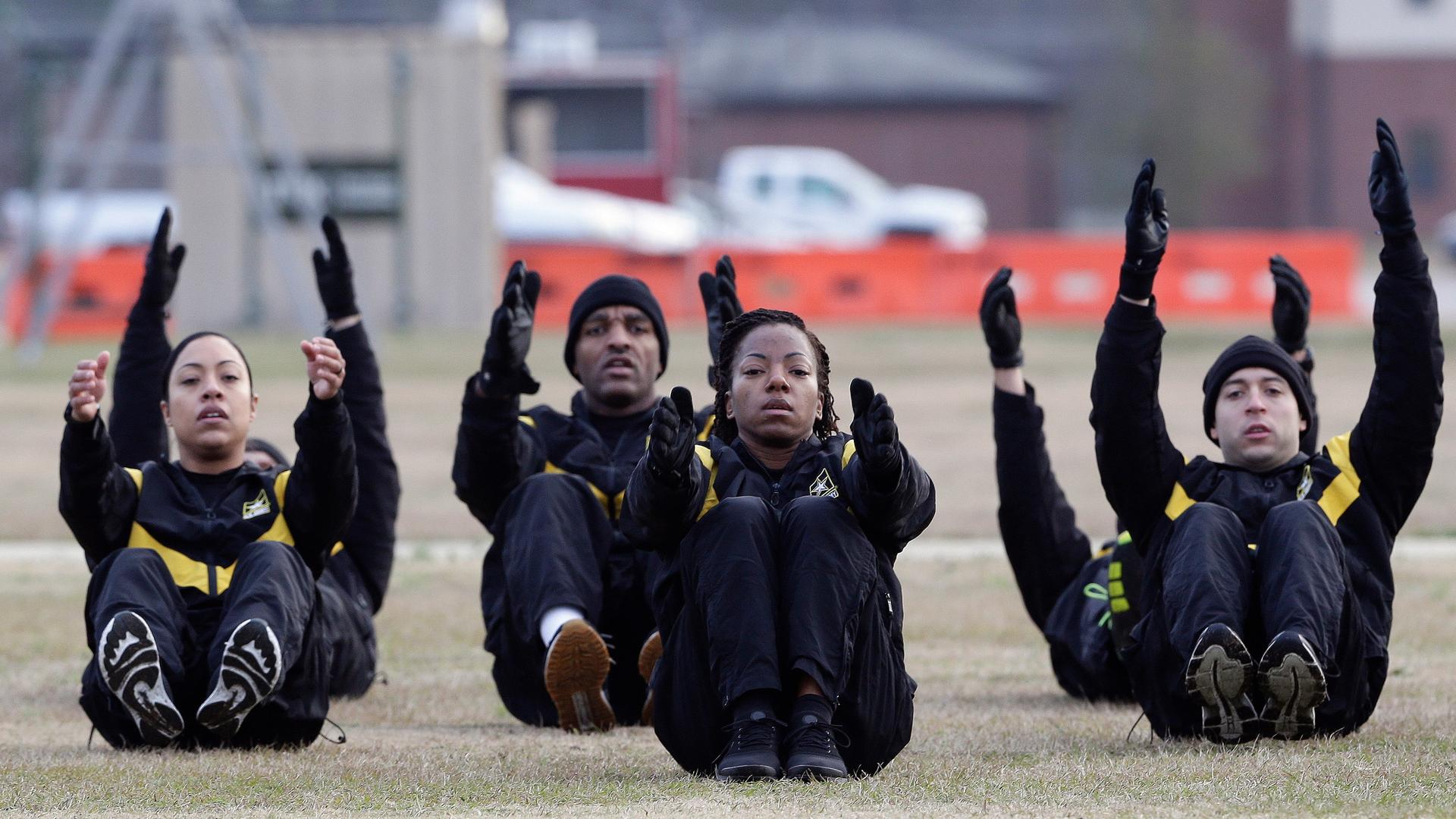This analysis was featured in Critical State, a weekly newsletter from The World and Inkstick Media. Subscribe here.
January marked five years since the US military opened up combat arms billets to women. That shift changed the way women are treated within the military and the way the US government thinks about gender and security. In the next two editions, Critical State takes a deep dive into new research on how US attitudes about gender and conflict have evolved since the end of sex segregation of military occupational specialties (MOS).
Related: US soldiers learn ‘democratic values’ but US also trains dictators
In an article in the latest issue of the Journal of Peace Research, political scientists Dara Kay Cohen, Connor Huff, and Robert Schub examined the state of public opinion on women in combat in the years since 2016. They set out to test statements made about the effect that women dying in combat might have on public support for US wars during the debate around opening up combat arms MOS to women. Opponents of ending sex segregation argued that women dying in war would be a drain on the public’s will to fight, which would lead to lower US resolve in wars if women were allowed on the front lines. Some supporters of women’s equality in the military, however, argued that the opposite would happen: Women in combat would be venerated as heroes and drive support for gender equality in other aspects of US life. Neither side had a great deal of evidence to back up their claims, so Cohen et al. set out to see whether, after the policy was implemented, either of the predictions came true.
Related: Biden reverses ban on transgender military service
To test the theories, Cohen et al. ran a major national survey in 2018, and then a number of smaller follow-up survey experiments to better understand the results. The initial survey offered respondents a hypothetical situation where a soldier named Todd or Mary — the name was switched for each respondent — was killed in a US special forces mission in Africa. Respondents were then asked whether they thought US involvement in the mission was a mistake, and a series of questions about their support for different forms of gender equality. In the follow-up survey, respondents were given more information about the hypothetical conflict and mission, and the number of reported casualties increased.
Related: Critics say Biden’s pick to lead the Pentagon upsets the civilian-military power balance
The results don’t look good for people who claimed that women dying in combat reduces support for war among the US public. Cohen et al. found that respondents basically didn’t care about the gender of the deceased soldiers. On a 7-point scale of support, shifting the soldier’s name from Todd to Mary reduced support for the mission by an average of 0.03 — statistically, no reduction at all. What’s more, no one cared. By breaking down the results by respondent age or gender, the numbers change very little.
For people who claimed that women in combat arms roles would bring about a shift in public attitudes about gender equality, the results are more complicated. Cohen et al. found that women dying in combat did increase public support for the idea of women military leaders — but only among women. Similarly, the initial survey showed an increase in support for private gender equality — measured in terms of support for equitable distribution of household chores between women and men — among women respondents when presented with women dying in combat. Yet, in follow-up surveys, the effect disappeared and women respondents’ responses looked much the same as men’s responses.
The arrival of women in US combat arms roles has, Cohen et al. show, been met with a resounding “sure.” Representation among those who die for their country matters in certain contexts to those being represented, but there is little evidence to suggest that the gender of combat casualties changes the way most Americans think about war and peace. In an era when constant US military deployments seem to drag on independently of public support for them, the prospect that women’s involvement on the front lines of those deployments could move public opinion one way or the other appears remote.
Critical State is your weekly fix of foreign policy without all the stuff you don’t need. It’s top news and accessible analysis for those who want an inside take without all the insider bs. Subscribe here.
Our coverage reaches millions each week, but only a small fraction of listeners contribute to sustain our program. We still need 224 more people to donate $100 or $10/monthly to unlock our $67,000 match. Will you help us get there today?
